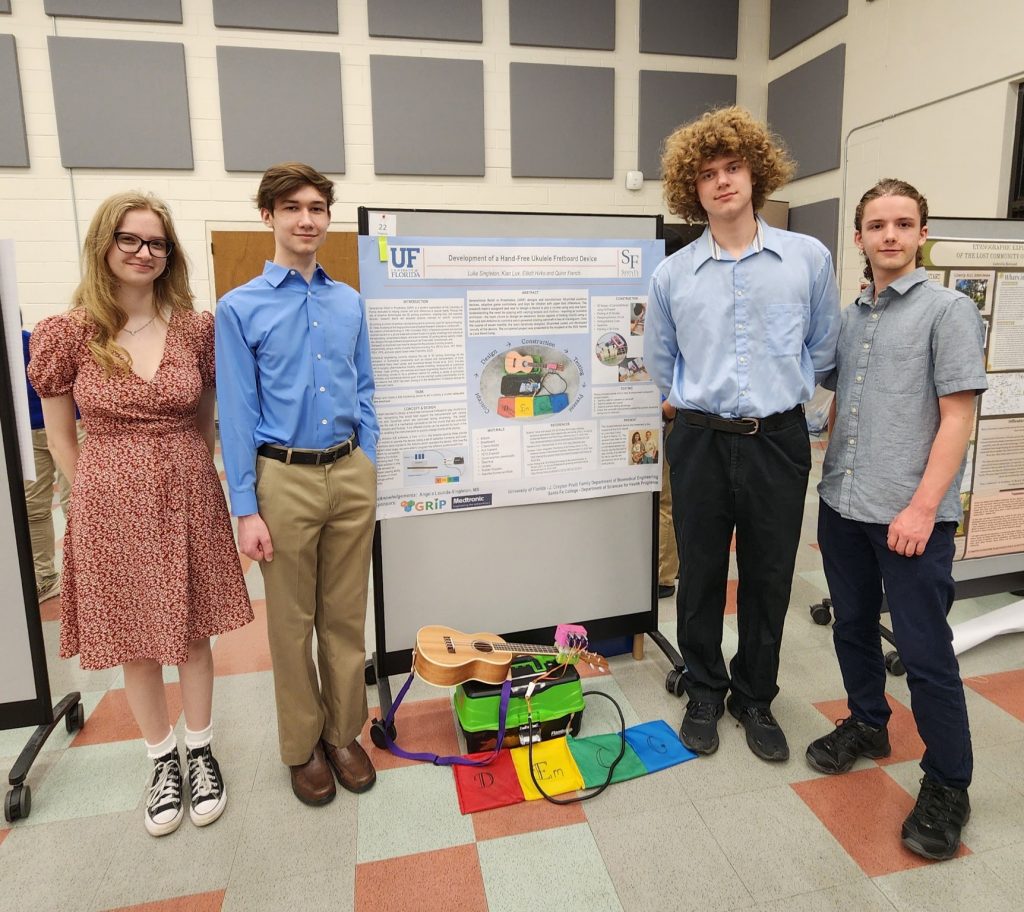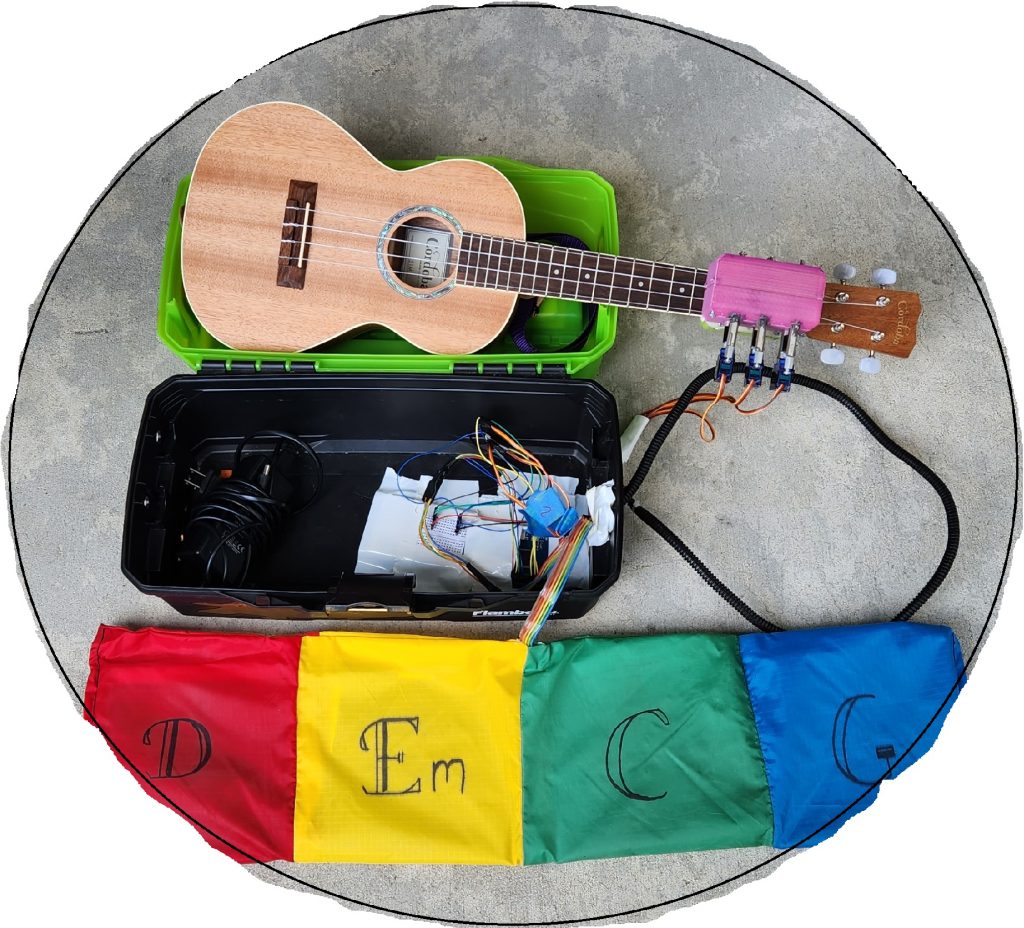
July 26, 2023 – Under the direction of UF’s Student Organization, Generational Relief in Prosthetics (GRiP), and SF’s faculty member, Angela Lounds-Singleton, four dedicated SF students designed and manufactured a 3D-printed assistive device for a Jacksonville teen to accommodate her upper limb difference. The research team’s assigned task was to design a device to play a ukulele using only one hand. As a group of young musicians, this team understood the need for playing with varying tempos and rhythms – requiring an available arm/hand – thus choosing to design an electronic device capable of fretting chords using a foot pad and Arduino to control a servo-powered rotating camshaft in lieu of teen’s missing arm. Over the course of seven months, the team iteratively designed, 3D-printed, coded, and developed the circuitry of the device. The completed project was presented to the recipient at the 2023 Hands to Love Hand Camp by team captain, Luke Singleton, in April.
Through the use of adaptive technology, the SF student team employed biomedical engineering principles using 3D printing for the fabrication of a camshaft used to fret a ukulele. Arduino IDE software, a form of C++, was used to control three precise servo motors to operate the device. “Using a set of variables, functions, and loops, the buttons send signals to the Arduino which operates the device,” says Kian Lux. In total, five positions were programmed using only four buttons. As an adaptive device, this team’s new design will allow individuals missing an arm the new ability to play a musical instrument through the use of a foot pad. With an overall investment of less than $200 to create the device, the gift of music has been passed on to one lucky teen in Jacksonville.

Completing this project was no small task for these four teens. With an overall investment of nearly 600 volunteer hours during the 2022-2023 school year, these bright young minds “completed one of the most complicated and intricate projects to date,” says Marion Hagstrom, GRiP President 2022-23.
Luke Singleton, team captain, is a rising homeschool senior who has been dual enrolled at SF for the past four years. He will be completing an AA in Engineering next spring. After SF he intends to major in film and possibly audio engineering, with plans to go into the film industry as a cinematographer. Singleton stated, “This experience allows me to gain more knowledge in 3D design and printing which I can later use for the creation of props and custom modifications for cameras and film gear on set.”
Kian Lux, lead coder, recently graduated his high school homeschool program while dual enrolled at UF. He plans to start college at SF this fall to complete his prerequisites before transferring to UF. When asked how this project would help him prepare for future studies and a career, Lux shared, “This project gave me a chance to practice and hone my coding skills, work on a difficult project in a team setting, and see what it is like to work as part of a large organization and the struggles that come with it. The hardest part of this project was streamlining and commenting on my code so future teams could use it.”
Quinn French is a recent homeschool high school graduate who simultaneously completed her A.A. through the SF dual enrollment program. This fall she is headed to Florida State University where she will dual major in Astrophysics and Violin Performance. When asked why this project was important, Quinn French shared, “This … was important because I got to help another person experience the world of music.”
The fourth member of the team, Elliott Hirko, device designer, is a rising senior of Gainesville High School and will be completing his AS in Biomedical Equipment Technician degree through the SF dual enrollment program. After graduating from high school, he plans to dual major in material science and nuclear engineering.
GRiP (Generational Relief in Prosthetics) is a student organization, made up of University of Florida students, that strive to make a difference in the lives of others. They make 3D-printed assistive devices, as well as adaptive controllers and toys, for those in need across the world. They also conduct research in a variety of areas and strive to educate the community on STEM through outreach activities.
